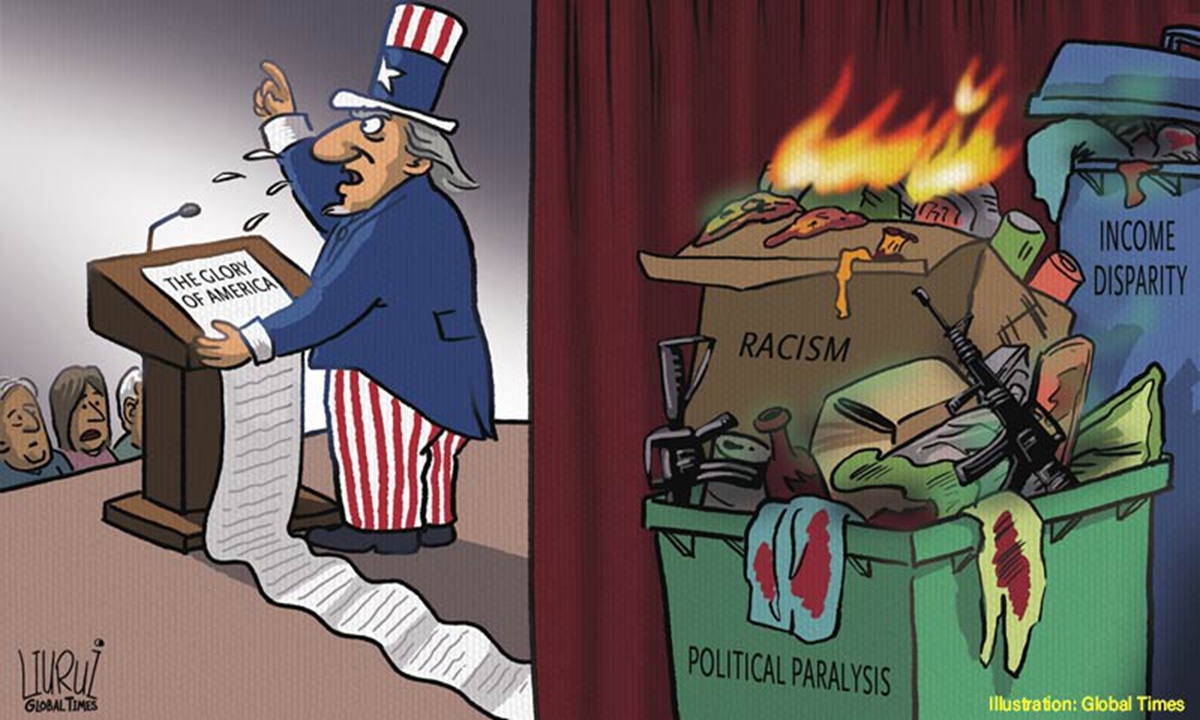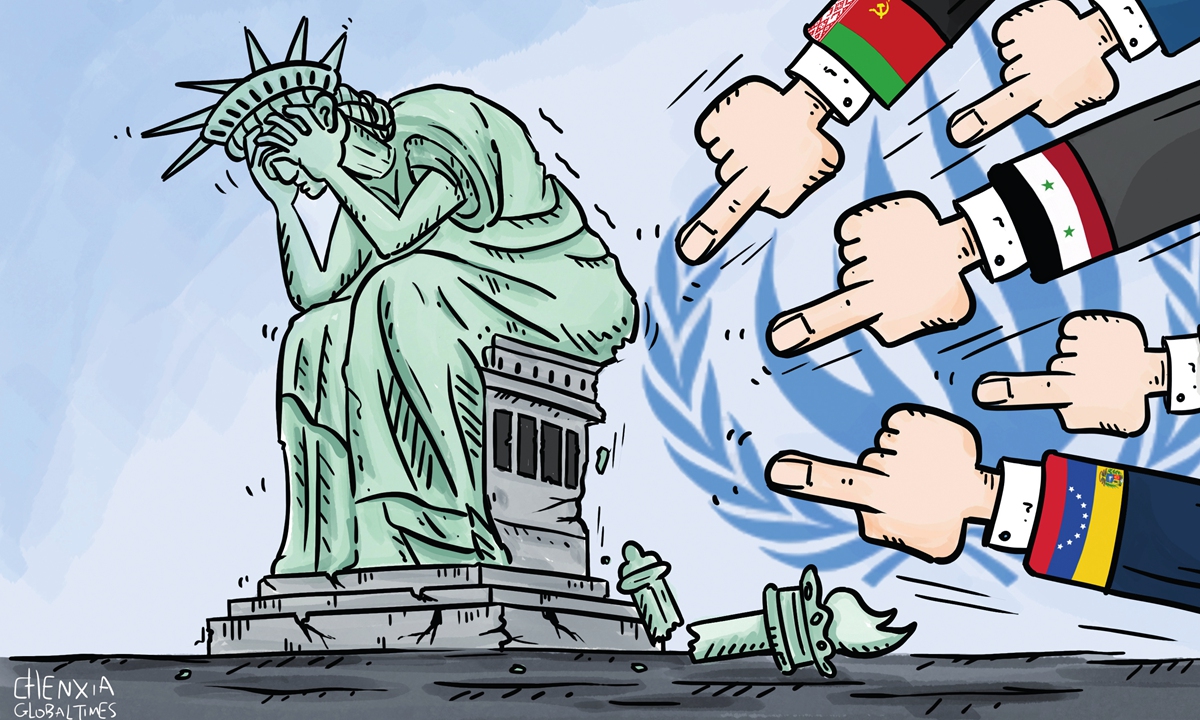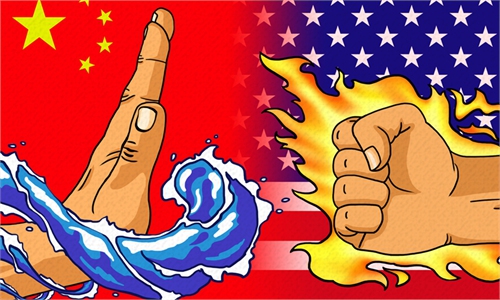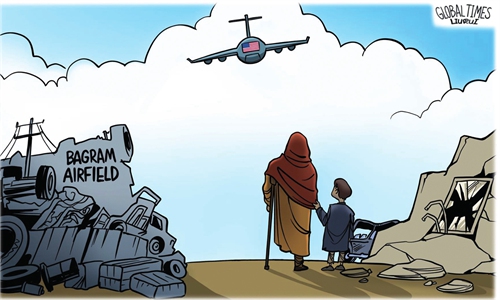
US human rights
"It is a joke… lie of the century!" The latest US move listing China as one of six countries in the world that are "witnessing" or are at risk of "atrocities and genocide" was ridiculed by the Chinese Foreign Ministry spokesperson.Experts said that the report is more like a "guidebook" for US politicians to initiate anti-China bills and to coordinate allies for the campaign to further smear China, especially when their own infamous human rights records are being further scrutinized at the 47th session of the United Nations Human Rights Council. Observers also warned the report may signal US' inciting more malicious actions against China over Xinjiang issue.
US Secretary of State Antony Blinken on Monday released an annual report on genocide and atrocities prevention, which claimed to "provide direct detailed accounts of atrocities" taking place in six countries. Listed were Myanmar, Ethiopia, China, Syria, Iraq and South Sudan. It accuses China of "committing genocide and crimes against humanity" against Uygurs and other minorities in its Xinjiang region.
The annual report is mandated by bipartisan legislation known as the Elie Wiesel Genocide and Atrocities Prevention Act, and was approved in 2018. This is the first time the annual report listed countries directly with detailed information. The 2020 report, released by the State of Department on August 7, 2020 also mentioned China's Xinjiang for the "human rights crisis."
The US has upgraded its accusations against China over Xinjiang topics to meet its current strategic purposes. The new content and countries listed in this year's report of the Elie Wiesel Genocide and Atrocities Prevention Act would help US lawmakers who are seeking hints for new bills and proposals to the president, Zhu Ying, a professor on international laws from Southwest University of Political Science and Law told the Global Times.
"The report is a guide-book for further anti-China actions. The new content in this report are like political lobbying materials offered to political elites to suggest draft bills, and with the politicians' talking about these topics in the media or to the public, the increased attention will create momentum. Moreover, more bills related to China's Xinjiang may be brought forward by US politicians, offering a legal basis for administrative departments to impose sanctions," Zhu said.
The US annual report also listed sanctions imposed by the US over Xinjiang issue and Blinken told media on Monday they will use all the tools at their disposal to "generate coordinated international pressure and response."
In response to the US move, Chinese Foreign Ministry spokesperson Zhao Lijian said at a routine press conference on Tuesday, "I want to tell you a joke. The US wrote in a report that its government will defend and protect the human rights of all people of the world."
Zhao said the US' move is "ridiculous and with its own notorious human rights record, instead of correcting its own problems, some people in the US always want to point fingers on others and a report made under this logic is "waste paper."
"I want to tell you another joke. The US has smeared China for 'committing genocide' and crimes against humanity in Xinjiang. This is the biggest lie of the century," Zhao said, noting that when talking about genocide, it suits the US perfectly.
"Hyping the issue, launching propaganda wars, upgrading accusations and kidnap international opinion… we saw the US play these tricks when it beat the war drum before invading Iraq. Its move has no legal basis in international law and violates international orders," Zhu said.
Zhu noted that genocide and committing atrocities are serious crimes and there are complete and mature procedures as well as international orders centered on the UN to verify and determine based on evidence whether one country has committed these crimes. No country has the right to make the judgment of "genocide," nor can it use domestic laws to impose unilateral sanctions on others.
Narrative war on human rights
The annual report came against the backdrop of the ongoing 47th session of the UN Human Rights Council where battles on Xinjiang-related topics and developing countries' efforts to oppose politicizing human rights by the US and Western countries have been intensified.
Wang Jiang, a distinguished research fellow at the Institute for Frontier Regions of China, Zhejiang Normal University, described the annual report as the latest US move to coordinate its allies for actions at the UN human rights body as well as to keep the momentum of the anti-China campaign.
The US and Western countries who are hyping Xinjiang issues are facing the embarrassing situation of having no solid evidence and this is why US released the report to link the words "genocide" and "atrocities" to China at any time on any occasion, Wang said.

Illustration: Chen Xia/GT
In contrast to the joint statement made by a small group of countries, including Canada, the US, the UK and Australia, which groundlessly accused China over Xinjiang related topics, a total of 67 countries expressed their support for China's stance at the ongoing UNHRC.
Wang noted that by leading the campaign to smear China, the US and the West are poisoning the environment of the UN Human Rights Council and blocking communications on human rights between developing countries and developed ones.
"China and developing countries have to robustly defend themselves," Wang said, referring to China's criticism of Canada, Australia and the US for their notorious human rights records, including genocide against indigenous people, murdering civilians in overseas military missions and domestic systemic discrimination against minorities.
Experts on human rights in China see China and developing countries' criticism against Western countries more as the efforts made to break the US and the West's monopoly over discourse on human rights.
"For a long time, the US and Western countries have not reflected on their mistakes in history, have imposed their own human rights conception on other countries, wishfully think others would repeat their mistakes, and did not take developing countries' useful advice to enrich the human rights content. Now more developing countries are voicing their opposition and taking actions to change the current system on human rights," Zhu said.




